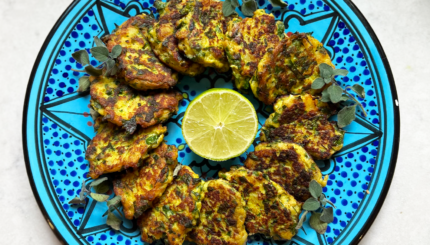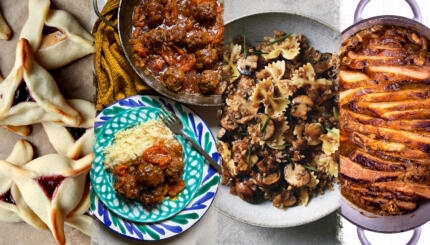Most years, my family’s seder plate is the same. A bitter herb, sprig of parsley, and boiled egg are just a few of the symbolic foods that we keep on our table. But this year…this year my family has decided we want to do something different.
For my family, there is another, less traditional ritual that we engage in every Passover. When we sit at our seder, we don’t simply retell the story of the Israelites in Egypt – we take time to discuss modern day examples of injustice, taking to heart the statements that we, too, should consider ourselves slaves in Egypt and that none of us are truly free until systematic oppression has been eradicated from our global society.
While our family conversation has taken a few forms in the past, last year our discussion started with adding an orange to our seder plate. We were not the first to do so; Susannah Heschel first put an orange on her seder plate in the 1980s. The orange was said to represent the need for inclusion of LGBTQ+ and other marginalized individuals in the Jewish community.
Now, thirty years later, my family is asking ourselves: what items should we add to our seder plates in the twenty-first century? Who, in our modern age, is in need of the freedom that we so joyously celebrate this time of year?
Sitting there, at our table, we came up with a few different possibilities. An olive, to represent peace, my mother offered. Cocoa beans, to remind us to fight for fair trade and labor practices, my father proposed. Jokingly, my grandpa recommended that we substitute the shankbone for tofu, since so many people we know are vegetarians. But even in his joke, we found meaning – ethical treatment of animals and sustainability in the farming industry are both issues that could theoretically be represented at our Passover seder.
By the end of our meal, we felt energized. Ready to act. Our conversation did not end along with our holiday meal. Instead, it charged us with being more conscious of our daily actions and to continue working for equality and freedom in ways we hadn’t thought of before.
This year, as we get ready for Passover, consider adding something new to your seder plate. Think about an issue that you care deeply about, be it criminal justice reform, fair trade practices, or working towards peace. With that issue in mind, find something new that you can add to your seder plate this year. Use that as a reminder that, while we celebrate the freedom of the Israelite people (and by extension, the Jews), our freedom is a powerful tool for us to use to end the oppression and ill-treatment of those around us.



